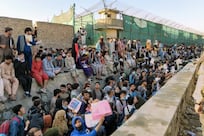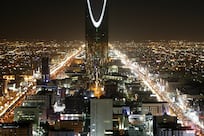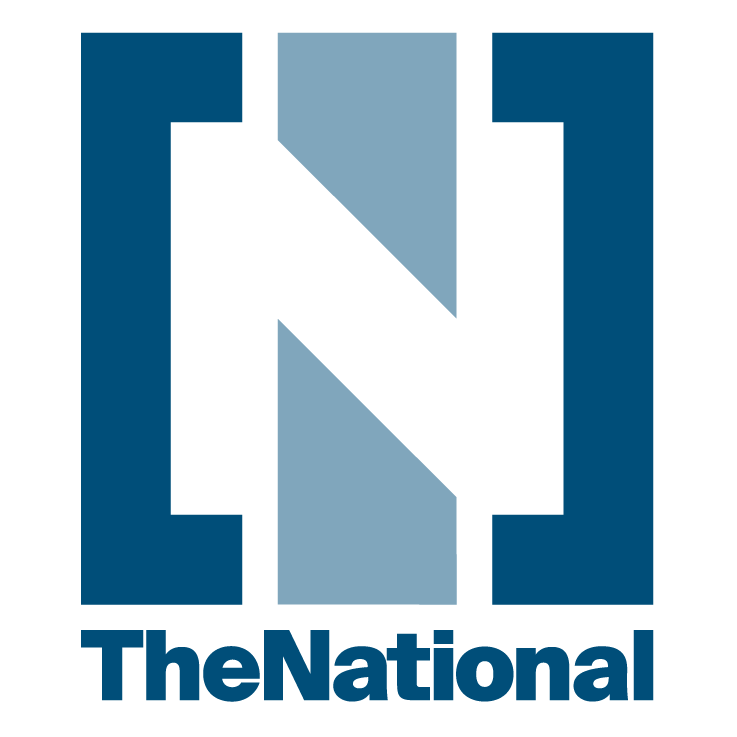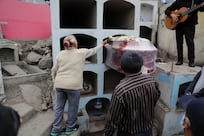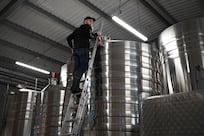A four-hour summit between US President Joe Biden and his Russian counterpart Vladimir Putin on Wednesday took place in a "constructive spirit" according to the Kremlin leader.
The summit at a Swiss lakeside villa was the final leg of Mr Biden's eight-day trip to Europe and was an effort to address the high tensions between Moscow and the West.
After the talks concluded, Mr Putin said the two sides had ended the summit with an agreement to return US and Russian ambassadors to their posts after both diplomats were recalled earlier this year.
He said the countries would hold further talks on cyber security and on strategic arms control discussions on the future of the world's two largest nuclear arsenals.
"There's been no hostility. On the contrary, our meeting took place in a constructive spirit," Mr Putin told a press conference.
"Both sides expressed their intentions to understand each other and to seek common ground. The talks were quite constructive."
Mr Biden came with a message that the US would stand up to cyber aggression from Moscow, after Russian operatives were repeatedly accused of meddling in US affairs.
He said he would tell Mr Putin that “if he chooses not to co-operate and acts in a way that he has in the past … then we will respond. We will respond in kind.”
The leaders got down to business in Geneva following a photo opportunity that descended into a chaotic scrum between the press pool and security forces.
Flanked by Mr Putin, US Secretary of State Antony Blinken and Russian Foreign Minister Sergei Lavrov, Mr Biden said it was "always better to meet face to face".
Mr Putin said that "US and Russian relations have a lot of issues accumulated that require the highest level meeting".

High tensions
Kremlin spokesman Dmitry Peskov had said that Moscow was not expecting a major breakthrough in relations with the US.
In April, Russia was hit with a series of sanctions in the aftermath of the SolarWinds attack on US government agencies.
Ransomware attacks would be a significant topic of conversation, a senior official in Mr Biden's administration said.
Russia was already under sanctions related to its annexation of Crimea in 2014, a move not recognised by most of the international community.
Tensions were heightened further earlier this year by Russia’s imprisonment of opposition leader Alexei Navalny.
“The talks today will not be easy; it will be a very difficult conversation,” Mr Peskov said.
"However, the fact that the two presidents agreed to meet and finally started to speak openly about the problems is already an achievement.”
Swiss President Guy Parmelin hosted the talks, which proceeded without a break for food.
Geneva was the location of a summit in 1985 between Ronald Reagan, US president at the time, and Soviet leader Mikhail Gorbachev.
The US and Russia still possess most of the world’s nuclear stockpile, and both have put more of their warheads into deployment.
A White House official said the leaders would discuss the future of nuclear arms reduction, as their New Start pact expires in 2026.
The future of arms limitation is “a big part of the question that the two presidents are trying to answer”, the official said.
Renewed for five years in January, New Start is the only remaining arms treaty between the two powers.
It was agreed in 2011, which was when Mr Biden last met Mr Putin, while serving as vice president under Barack Obama.

After attempting a “reset” of US-Russia relations, Mr Obama imposed sanctions on Russia over the annexation of Crimea and election interference, before leaving office in 2017.
His successor Donald Trump took a warmer tone with Mr Putin, causing outrage in the US by accepting his denials of election meddling.
The mood has grown tenser under Mr Biden, who described Mr Putin in a March interview as "a killer".
Security was high at the Geneva villa, with patrol boats cruising along Lake Geneva and heavily armed troops standing guard at a nearby marina as the leaders talked.
Nato Secretary General Jens Stoltenberg said on Monday that relations with Russia were at their lowest point since the Cold War.
Biden and Putin shake hands as frosty summit begins in Geneva

The EU’s foreign affairs chief Josep Borrell said on Wednesday that the prospect of better relations between Europe and Russia appeared more distant that ever.
"We believe that a renewed partnership, allowing us to realise the full potential of a close co-operation with Russia, is a distant prospect.
"The EU, therefore, needs to be realistic and prepare for a further downturn of our relations with Russia."
Mr Borrell was presenting a report that outlined how the EU could better manage relations with Russia.
The document said that “the potential for EU-Russia co-operation is considerable”.
“However, the Russian government is actively pursuing objectives that go in the opposite direction,” it added.













